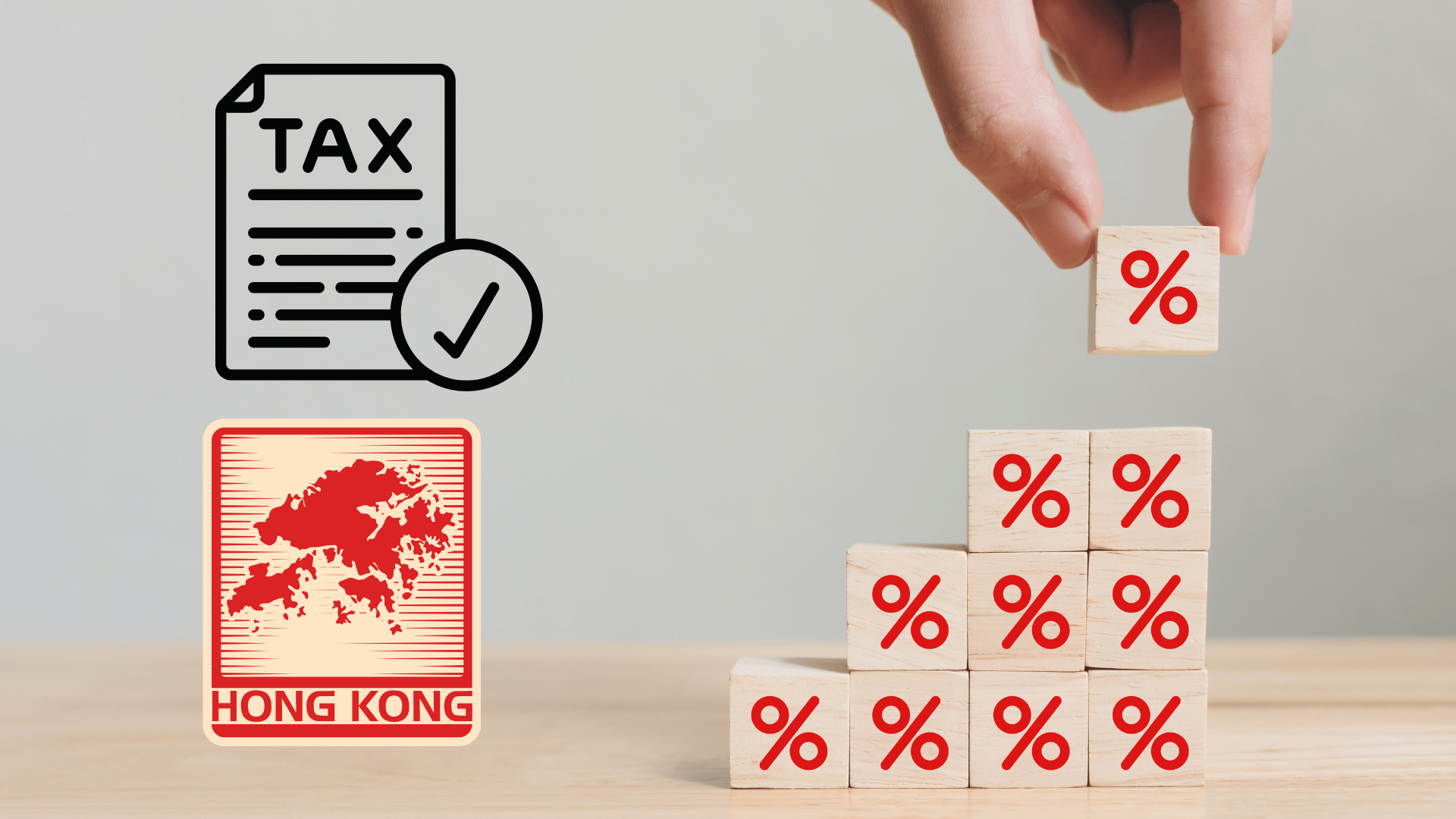A Guide to obtaining Certificate of Resident Status in Hong Kong
Certificate of Resident Status (CoR) (居民身分證明書) is a document issued by the Hong Kong Inland Revenue Department (IRD) stating that the applicant, who can be an individual or an entity, is a Hong Kong tax resident under the double tax agreement (DTA) between Hong Kong and a particular foreign tax jurisdiction for a particular calendar year.
In order to enjoy the tax benefits, it is required to obtain a Certificate of Resident Status (‘Resident Certificate’) or Tax Residency Certificate from the IRD as proof of this Hong Kong resident status.
Currently, Hong Kong has entered into 53 double taxation agreements (‘DTA’) under which a Hong Kong tax resident is potentially entitled to tax treaty benefits, such as enjoying a preferential tax rate in respect of the withholding tax on passive income, e.g. dividend income, interest income, and royalty income, charged by the DTA partners of Hong Kong.
Without a CoR, a foreign tax authority will likely apply its standard domestic withholding tax rates on income paid to a Hong Kong entity, which can be significantly higher. For example, the standard withholding tax on royalties could be 20% or more, but under a DTA, this might be reduced to 5% or even 0% upon presentation of a valid CoR.
This is not always a straightforward process as seen in the application of different double taxation agreements like the Hong Kong – Spain one among others.
Eligible Parties for Tax Residency Certificate
In general, the following persons and entities are eligible to apply for the Resident Certificate:
- An individual who ordinarily resides in Hong Kong;
- An individual who stays in Hong Kong for more than 180 days during a year of assessment or for more than 300 days in 2 consecutive years of assessment, one of which is the relevant year of assessment;
- A company, partnership, trust, or other body of persons incorporated or constituted in Hong Kong; and
- A company, partnership, trust, or other body of persons incorporated or constituted outside Hong Kong but managed and controlled in Hong Kong.
For example, a number of Hong Kong companies are used as
- a vehicle to hold the shares of entities in various jurisdictions, in particular mainland China;
- a treasury centre to advance loans to foreign group entities, and
- an intellectual property (IP) holding vehicle which licenses the IP rights to foreign entities.
In return, Hong Kong companies receive dividend income, loan interest income, and royalty income therefrom respectively.
With a view to enjoy a potential lower withholding tax rate on the said passive income in foreign tax jurisdictions (e.g. from 10% to 5% on dividends paid out from mainland China pursuant to the DTA between mainland China and Hong Kong), Hong Kong companies need to apply for the CoR with the IRD.
The Impact of the FSIE Regime on CoR Applications
A critical development is Hong Kong’s Foreign Sourced Income Exemption (FSIE) regime, effective from January 1, 2023. This regime taxes certain foreign-sourced passive income unless the entity meets specific “economic substance requirements” in Hong Kong.
This is directly relevant to CoR applications. The FSIE regime provides the IRD with a strong legislative basis to scrutinize the substance of an applicant. An entity that fails to demonstrate adequate local decision-making, staff, and expenditure for FSIE purposes will find it difficult to be granted a CoR. The two concepts—economic substance and tax residency—are now intrinsically linked.
CoR Application Forms
In order to obtain such a Resident Certificate, it is required to provide the IRD with an application form together with the relevant required documents. It usually takes about 21 working days for the IRD to assess the application.
For companies, partnerships, trusts, and other bodies of persons.
For individuals.
The forms require detailed information about your business operations, management structure, and the specific income for which you are claiming DTA benefits. The IRD may raise further queries if they are not satisfied that the applicant has sufficient economic substance in Hong Kong.
Key changes to CoR application
Effective 1 February 2015, the IRD revised the Resident Certificate application process for companies seeking treaty benefits. Here are some major changes:
1. Unified form for the Hong Kong/Mainland China DTA
Both Hong Kong- and non-Hong Kong-incorporated companies now use the same application form for the Hong Kong / Mainland China DTA. Previously, separate forms applied.
2. Expanded information for Hong Kong-incorporated applicants
For Hong Kong/Mainland China DTA claims, Hong Kong-incorporated companies must now provide more detailed information—previously required mainly from non-Hong Kong companies—including:
- Business activities and establishments in and outside Hong Kong
- Details of managerial personnel and staffing
- Where management and control are exercised
3. Additional disclosures for all applicants (HK/Mainland China DTA)
All applicants must also disclose:
- Principal bankers in Hong Kong
- Total number of Hong Kong bank accounts
- Nature of any permanent establishment in Hong Kong
- Cash-at-bank balance as at the end of the last reporting period
4. DTAs with jurisdictions other than Mainland China
All applicants must provide similar disclosures:
- Principal bankers in Hong Kong
- Total number of Hong Kong bank accounts
- Nature of any permanent establishment in Hong Kong
- Cash-at-bank balance as at the end of the last reporting period
These changes signal a tighter IRD review of Hong Kong tax residency, particularly for Hong Kong/Mainland China claims, and make obtaining Resident Certificates under other DTAs more burdensome.
There is also a risk of erroneous tax residency reporting coming from banks and other institutions which may jeopardise the acquisition of the correct certificate of tax residency.
Post‑submission IRD enquiries: what evidence to prepare
After you submit a CoR application, the IRD may request additional documents to substantiate Hong Kong tax residency. Have the following ready:
Premises in Hong Kong:
Address, size, floor plan, functions, tenancy or ownership documents.
Directors and senior management:
Personal particulars, responsibilities, usual place of work, remuneration, supporting documents.
Board governance:
Details of directors’ meetings, agendas, any board packs or circular resolutions.
Decision‑making functions:
Who, how and from where strategy is set, business directions determined, work plans approved, financing decided, policies implemented, and performance evaluated, supporting materials.
Operational execution:
Who, how and from where day‑to‑day business activities are carried out, staff lists, job descriptions, workflow documentation, timesheets, office access logs, service‑provider agreements.
Possible challenges for CoR application
- The applicant, such as an investment or IP holding company, may not have much substance, such as office, fixed assets and employees, in Hong Kong.
- The applicant’s director(s) manages and controls the applicant’s business outside of Hong Kong, or the applicant’s director(s) in Hong Kong does not actively participate into the management and control functions for the applicant.
- The applicant does not have active business and is considered as being set up in Hong Kong for the purpose of obtaining tax benefits granted under the DTAs.
- The IRD may refuse to issue a CoR where it is considered that the applicant would not be entitled to the tax treaty benefits, such as certain conditions for claiming the tax treaty benefits cannot be met.
Period of validity of the Certificate of Resident Status
In general, a CoR is valid for one calendar year only. However, a CoR applied for the purpose of the DTA between mainland China and Hong Kong is generally valid for that calendar year and the two succeeding calendar years, unless there are changes in the applicant’s circumstances.
HKWJ Tax Law can help
If an entity would like to apply for a CoR, it is recommended to plan ahead and review whether its management and control functions are exercised from out of Hong Kong and whether it has sufficient substance maintained in Hong Kong. Then, the entity should take the necessary actions to strengthen the claim for the CoR before making the application.
Applicants also need to be skilful and careful when preparing the application for the CoR and answering to the IRD’s enquiries. Providing unfavourable information or documents might potentially result into denial of the issuance of the CoR by the IRD.
In order to strengthen the chance of success, one needs to voluntarily provide the favorable information, documents and grounds for the CoR, instead of merely supplying the information and documents requested by the IRD.
It is strongly advised to engage a tax lawyer to help you in obtaining the CoR in Hong Kong. At HKJW Tax Law we have successfully handled CoR applications and we are here to provide the relevant guidance in obtaining your CoR. Please feel free to contact us via the form below for more information.




